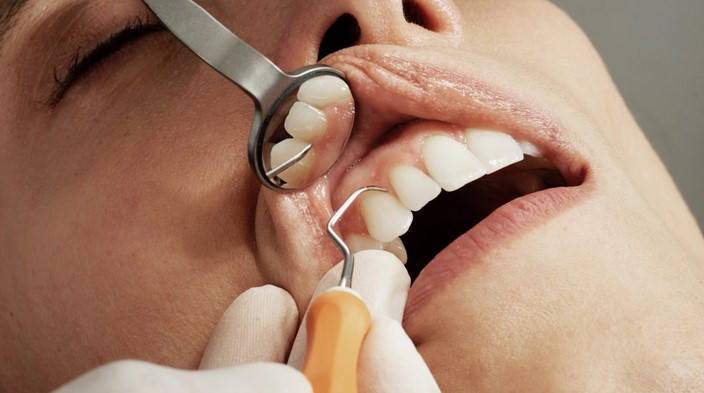
Maintaining good oral health is essential for overall well-being. It’s not just about having a bright smile; oral health is linked to various aspects of our physical and mental health. One of the key factors in maintaining oral health is effective plaque removal. Plaque, a soft and sticky film of bacteria that forms on teeth, can have far-reaching implications if not adequately managed. In this comprehensive overview, we delve into the importance of plaque removal and the various methods to achieve it.
Understanding Plaque: The Silent Culprit
Plaque is a naturally occurring substance that develops on teeth throughout the day. It consists of bacteria, food particles, and saliva. While some bacteria are harmless, others can be harmful and lead to tooth decay, gum disease, and other oral health issues. As plaque accumulates, it hardens and transforms into tartar or calculus, which is more challenging to remove and requires professional dental intervention. The constant buildup of plaque can result in cavities, gum inflammation, bad breath (halitosis), and even tooth loss.
The Link between Plaque and Oral Health Issues
The impact of plaque on oral health cannot be overstated. Plaque harbors bacteria that produce acids when exposed to sugary or starchy foods. These acids erode tooth enamel, leading to cavities. Additionally, the bacteria in plaque can irritate and inflame the gums, causing gingivitis. If left untreated, gingivitis can progress to a more severe form of gum disease known as periodontitis. This advanced stage can lead to the destruction of the tissues supporting the teeth, resulting in tooth mobility and potential tooth loss.
The Role of Effective Plaque Removal
Plaque removal is a fundamental aspect of preventing oral health issues. By removing plaque regularly, individuals can significantly reduce the risk of cavities, gum disease, and other complications. Proper plaque removal not only benefits oral health but also contributes to overall well-being. When plaque is eliminated, the likelihood of bacteria entering the bloodstream and causing systemic health issues like heart disease and diabetes decreases.
Methods of Plaque Removal
1. Brushing: Regular and proper brushing is the cornerstone of plaque removal. Dentists recommend brushing at least twice a day using fluoride toothpaste. A soft-bristled toothbrush should be used, as it effectively removes plaque without causing damage to the gums or enamel. Brushing should cover all tooth surfaces, including the back molars and the tongue.
2. Flossing: Flossing is essential for removing plaque and food particles from between teeth and along the gumline, where toothbrushes may not reach effectively. Dental floss or interdental brushes can be used to clean these areas. Flossing should be gentle to avoid damaging the gums.
3. Mouthwash: Antimicrobial mouthwash can help reduce bacteria and plaque buildup. However, it should be used as a supplement to brushing and flossing, not a replacement. Mouthwash can reach areas that brushing and flossing miss, providing additional protection against plaque.
4. Dietary Choices: Limiting the intake of sugary and starchy foods can also help prevent plaque formation. These foods provide a breeding ground for bacteria that contribute to plaque buildup and acid production. Instead, opt for a balanced diet rich in fruits, vegetables, lean proteins, and whole grains.
5. Regular Dental Check-ups: Professional dental cleanings are crucial for maintaining optimal oral health. Even with diligent at-home care, plaque can still accumulate in hard-to-reach areas. Dentists and dental hygienists have the tools and expertise to remove stubborn plaque and tartar, preventing potential complications.
The Benefits of Effective Plaque Removal
1. Prevention of Dental Issues: By removing plaque, individuals can significantly reduce the risk of cavities, gum disease, and related problems. This translates to fewer dental procedures, less discomfort, and potential cost savings.
2. Fresh Breath: Plaque buildup is a leading cause of bad breath. Effective plaque removal can help maintain fresher breath and improve self-confidence.
3. Preservation of Natural Teeth: Tooth loss is often a consequence of advanced gum disease. Regular plaque removal can help preserve natural teeth and avoid the need for replacements like dental implants or dentures.
4. Overall Well-being: Good oral health is linked to better overall health. By preventing oral health issues, individuals can reduce the risk of systemic diseases and enjoy a higher quality of life.
Conclusion
In the pursuit of overall well-being, oral health should never be underestimated. Plaque removal plays a pivotal role in maintaining healthy teeth and gums. By adopting a consistent oral hygiene routine that includes brushing, flossing, using mouthwash, making healthy dietary choices, and scheduling regular dental check-ups, individuals can effectively manage plaque buildup and safeguard their oral health. Remember, a smile is more than just an expression; it’s a reflection of one’s dedication to self-care and a window to a healthier life.